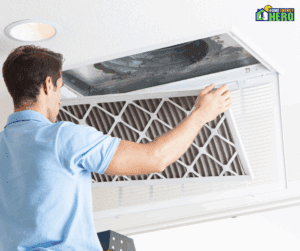
Protect Your Home or Pay the Price
When it comes to keeping your home comfortable and energy-efficient, filters do more heavy lifting than you might realize. That’s why today, we’re diving into The Truth About Filters—and why they’re so critical to your home’s health. A clean, properly installed filter protects your HVAC system, improves your indoor air quality, and helps lower your energy bills. But when filters are ignored—or installed incorrectly—they can cause serious problems that cost you in comfort, health, and expensive repairs. Taking care of your filters is one of the easiest ways to protect both your home and your wallet.
Breathe Easier: The Power of a Good Filter
Filters may seem like a small part of your HVAC system, but they play a big role in your home’s comfort and air quality. Their main job is to trap dust, allergens, and other airborne particles—keeping the air cleaner for you and your family while also protecting the inner workings of your HVAC system. When filters are clean and properly installed, they allow for better airflow, which helps your system run more efficiently and keeps your energy bills in check.
The Cost of Neglecting Your Filters
Here’s the truth about filters—ignoring them can lead to big problems. When filters become clogged with dust and debris, they restrict airflow, forcing your HVAC system to work overtime just to keep up. This not only drives up your energy bills but also causes uneven temperatures and poor air circulation throughout your home. Over time, the added strain can lead to costly damage to key system components, shortening the lifespan of your equipment. A simple filter change can prevent a world of trouble.
Common Filter Mistakes (That Hurt Your Home)
Even when you’re changing your filters regularly, mistakes in installation can still cause problems. One of the most common issues? Installing a filter backwards. It may seem minor, but a backwards filter can block airflow just like a clogged one. Another mistake is choosing a filter with a MERV rating that’s too high—while it might catch more particles, it can also restrict airflow and strain your system. And don’t overlook the filter access door. If it’s missing or broken, unfiltered air full of dust and debris can bypass the filter entirely, reducing system efficiency and spreading contaminants throughout your home. These small oversights can have a big impact—so it’s worth double-checking your setup.
Pro Tip: Turn It Off Before You Swap It Out
Before replacing your filter, always turn off your HVAC system. Changing it while the system is running can cause dust and debris to get sucked into the unit, leading to immediate messes and long-term damage. A simple step, but one that protects your system every time.
How to Stay Ahead of Filter Trouble
To keep your HVAC system running smoothly, it’s important to check your filters every 1–3 months—though the exact timing can vary depending on your system, usage, and whether you have pets or allergies. The truth about filters is that even the best ones won’t do their job if they’re not changed on time or properly matched to your system. Using the right type of filter is just as critical as replacing it regularly. Not sure when to check? Set a seasonal reminder—like during daylight saving time or major holidays—to make it part of your routine. Small steps like these can make a big difference in comfort and efficiency.
Conclusion: Keep It Simple, Keep It Smart
The truth about filters is simple: regularly checking and replacing them can protect your HVAC system, lower your energy bills, and improve your home’s air quality. Being proactive with filter maintenance is far easier—and far cheaper—than dealing with a breakdown later. Want to make sure your entire system is working as efficiently as it should?
Schedule a home energy audit today and take the guesswork out of home comfort and efficiency, contact us.
